Monica Wiitanen:
Cottage Food Law
Baker Monica Wiitanen at her home in Paonia, Colorado.
“I got out a cookbook and started making yeast breads when I was 18 and I've been making bread pretty much ever since,” said Monica Wiitanen at her home in Paonia, Colorado.
“It’s about the flavor, texture, ingredients, value. What I make is real food. I use good ingredients and I grind the whole grains fresh. There are many different ways to make good bread and none of them require ingredients you can't pronounce,” said Monica.
Monica bakes in a wood-fired oven with a 32 by 36 inch hearth. On a table in front of the six ton structure, golden-brown sourdoughs sit cooling, filling the outdoor air with a delicious, savory smell.
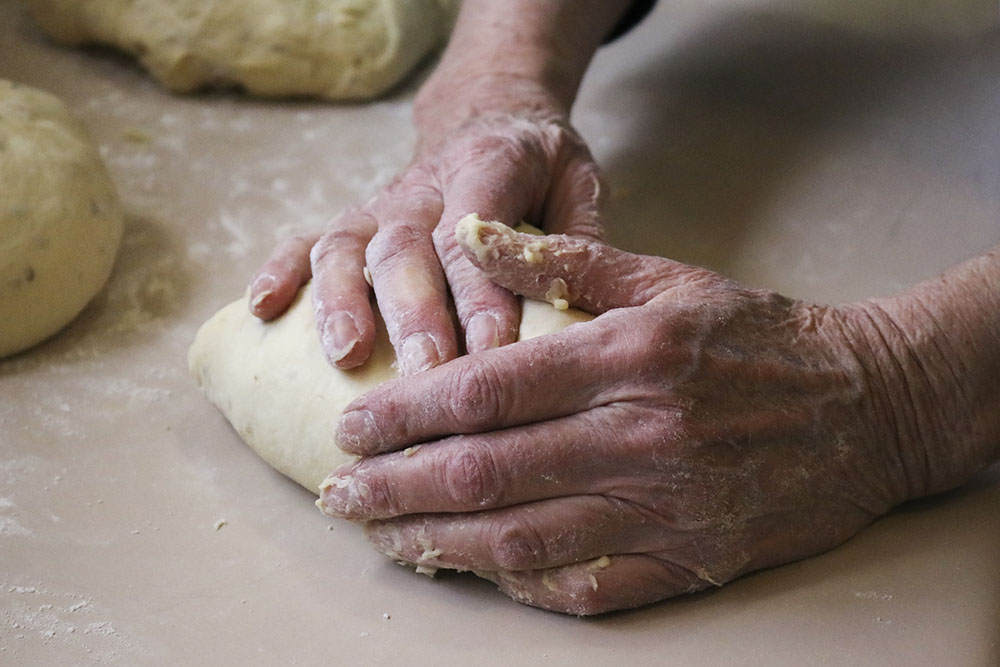
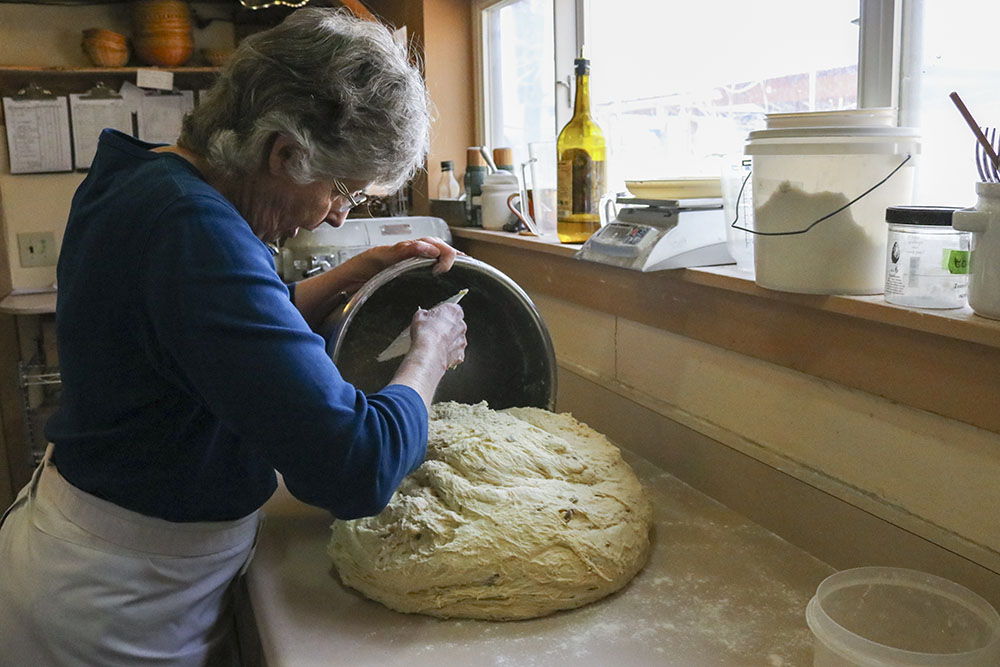
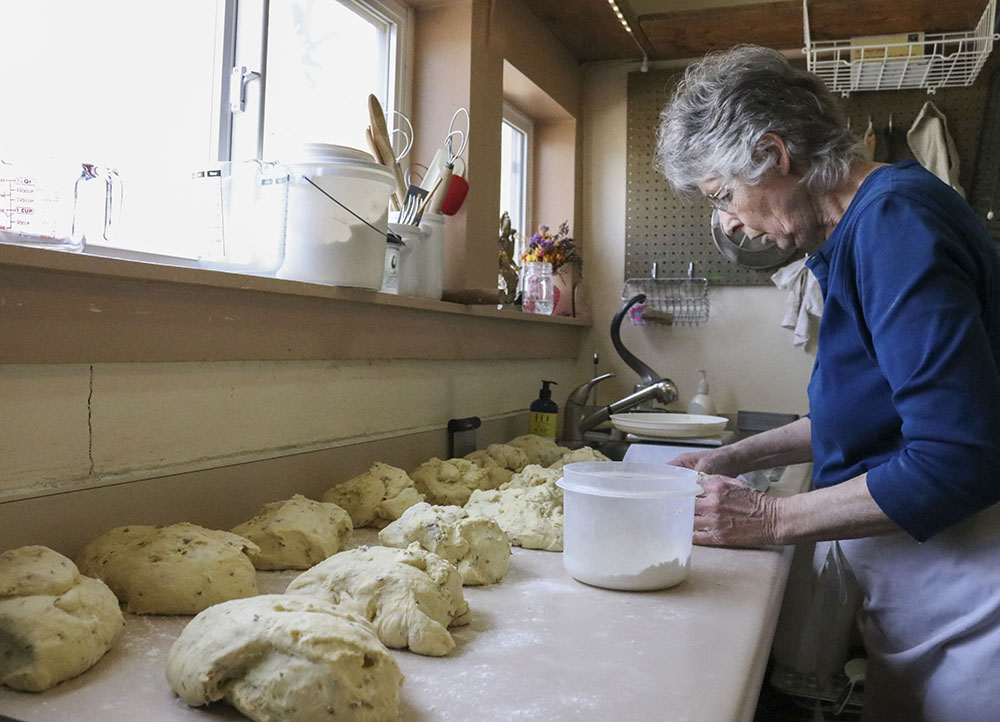
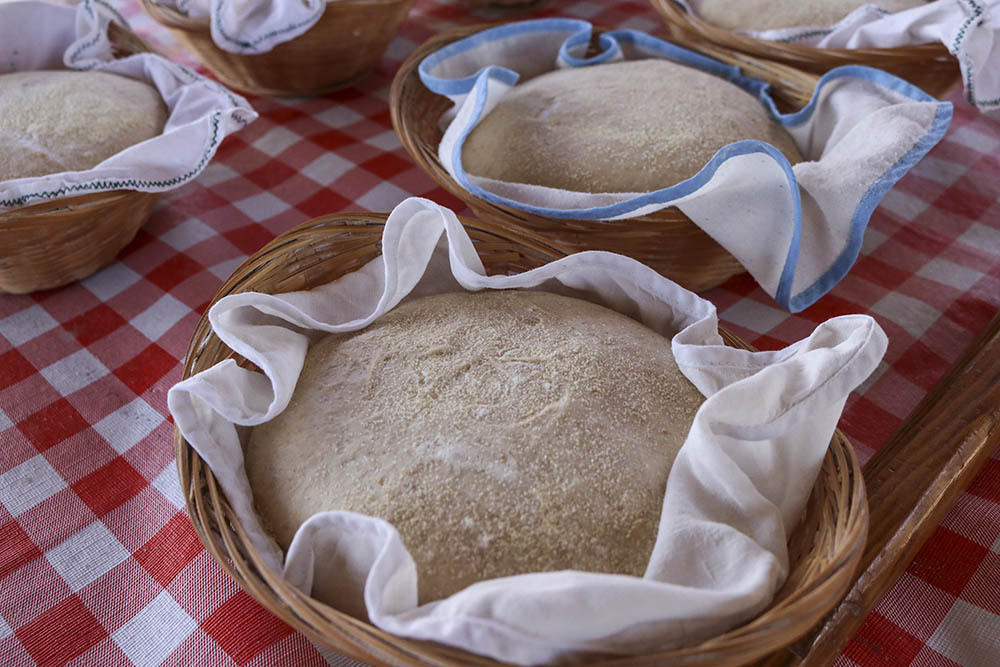
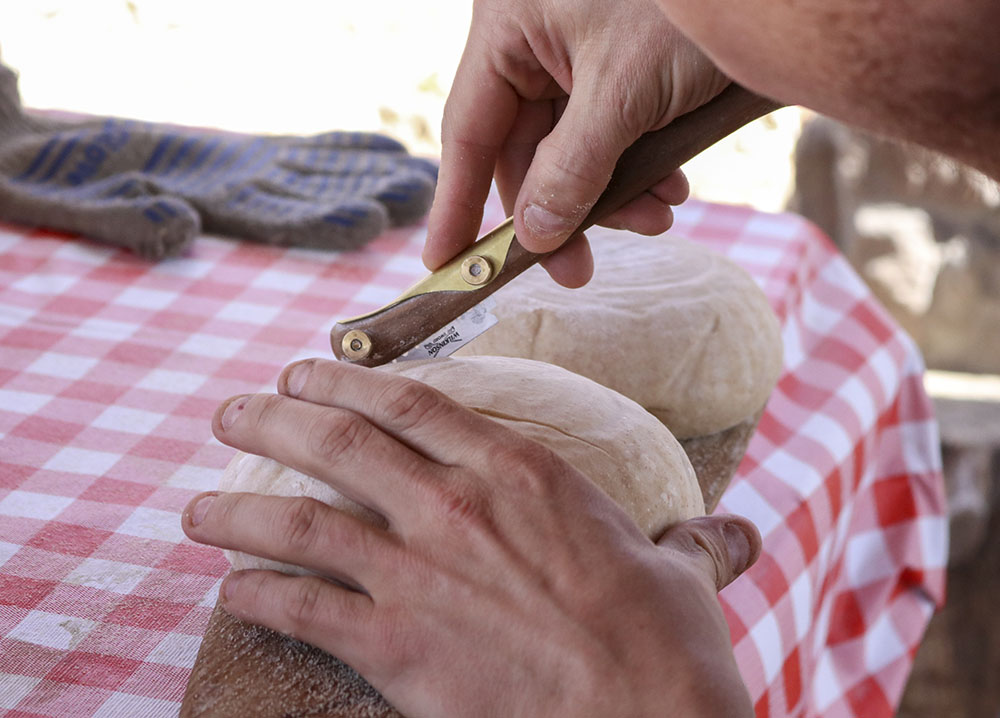
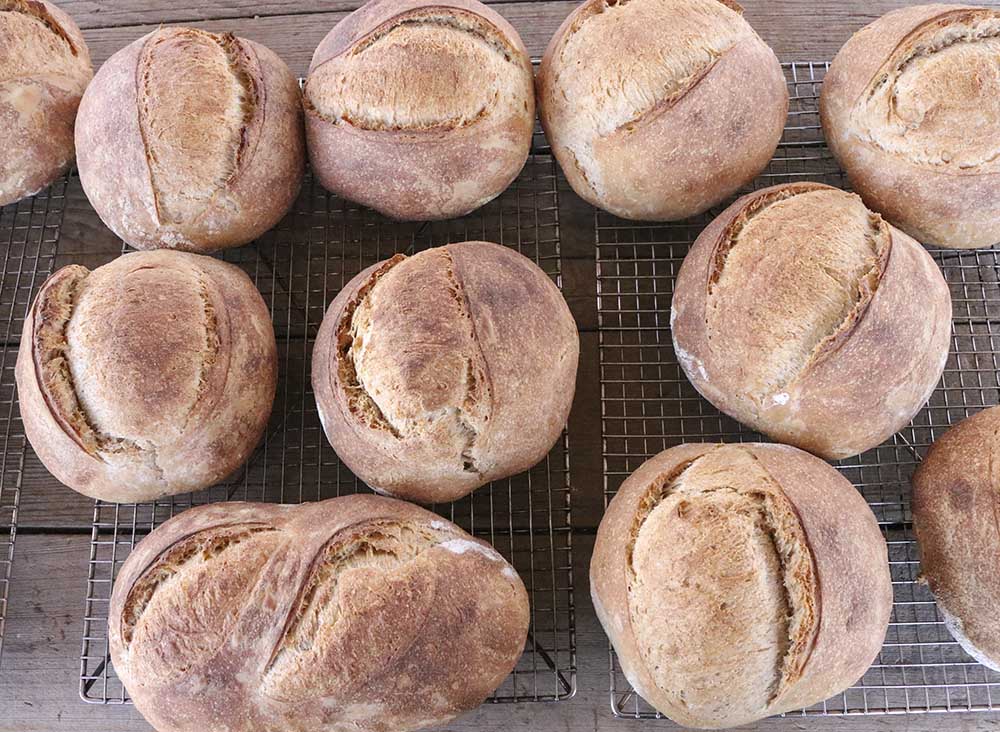
The process of baking sourdough.
Today, Monica runs Small Potatoes Bakery out of her home. People come from all over Delta County every Friday, Saturday and Sunday to purchase fresh, artisan breads right from her door.
Before 2012, home producers could not legally sell direct to consumers -- Monica wanted to change that.
After living in Michigan and Oregon for a number of years, the Wiitanen family settled in Paonia on a small farm. They spent the next 13 years running a vegetable farm.
While running the farm, Monica realized how important it is for producers to sell their own products directly. In 2010, Monica worked with Western Colorado Congress [now, the Western Colorado Alliance] to pass a Colorado Cottage Food Law that allowed producers to sell directly to consumers.
Oven master and lead baker Lael Langston holds a freshly baked savory bread.
“When Gail Schwartz was running for the state senate, I would go whenever she came to Delta County just to make sure she knew who I was. I was thinking, ‘If ever you need to ask one of these elected people to do something for you, they need to know who you are,’ so I would just show up … and of course I gave her some of my bread.”
The Cottage Food Law was fully enacted in 2012. A week after the law passed Monica took a food safety handling class put on by the county health department. She started Small Potatoes Bakery a day later.
The Cottage Food Law allows food businesses to sell certain low-risk items prepared outside of commercial kitchens without permits from county health inspectors. The law was necessary for Monica to run her bakery.
“I couldn't use my own kitchen if we didn't have a Cottage Food Law.” It would have cost Monica 15 to 20 thousand dollars to turn her kitchen into a state-approved facility. “It was more effective for me to work on the Cottage Food Law, be able to use the home kitchen and not have to deal with health departments,” said Monica.
Monica talks to a baker about muffins going into the oven.
One of the benefits of the Cottage Food Law was that Monica could start her business without a loan. “I had the oven, I had a mixer, had grains and flours in the pantry. I could bake, sell the bread and gradually bring in a little more money and a little more money and buy more grains. I’d eventually get some money out of the deal and pay other people to help me.”
The Cottage Food Law helped producers employ a new workforce. “At the time the bill was going through the legislature, Senator Schwartz often referred to the Cottage Food Bill as a jobs bill, and I always thought, ‘well it's going to be farm people doing what they do.’ I didn't quite get the jobs part of it, but I now pay four people to help me.”
Monica’s oven master and lead baker Lael Langston has worked at Small Potatoes Bakery for three years managing the oven. “She manages the heat in the oven in a way that no one else can. There is probably a science to it, but I think it’s more of an art. You’re following in a tradition that takes time. Lael has done that in spades,” said Monica.
Recently, Monica started selling jams made by local farmer Jacob Gray. “Customers love it. It has incredible flavor and it sells itself.”
Oven master and lead baker Lael Langston pulls sourdoughs out of the oven. “[Lael] manages the heat in the oven in a way that no one else can. There is probably a science to it, but I think it’s more of an art. You’re following in a tradition that takes time. Lael has done that in spades,” said Monica.
Farmer Scott Horner works the Wiitanen farm growing salad greens and vegetables. He sells his produce alongside of Monica’s bread from his barn 200 feet from Monica’s kitchen. Their symbiotic relationship makes for a perfect one-stop shop for farmstand customers. Consumers can purchase fresh veggies and fresh, handmade bread from Small Potatoes Farm and Bakery.
Monica takes pride in the service she provides to the community. “I’m just so amazed at how much we are appreciated in this community. When people thank me I thank them back because it takes all of us to make this work. It takes the farmers, bakers and customers working together.”
Monica’s bread is carefully crafted and a lot of thought goes into her product. Although she only sells her bread three days a week, she spends part of every day of the week working toward market days. She constantly perfects old recipes, works new ones and prepares doughs.
Monica appreciates Western Colorado Alliance’s work in getting the Cottage Food Law passed and that she was able to be a part of it. “Having that opportunity to be a part of the Cottage Foods work was just really a wonderful thing for me. That's one of the reasons that people should consider being part of Western Colorado Alliance, these opportunities to take part in creating laws and being real citizens.”
Monica and her wood-fired oven.



![Oven master and lead baker Lael Langston pulls sourdoughs out of the oven. “[Lael] manages the heat in the oven in a way that no one else can. There is probably a science to it, but I think it’s more of an art. You’re following in a tradition that t…](https://images.squarespace-cdn.com/content/v1/5b873d21365f02317e2178d7/1537637902857-3J9NSW12GUP9SS9KR6GK/lair_at_oven.jpg)
